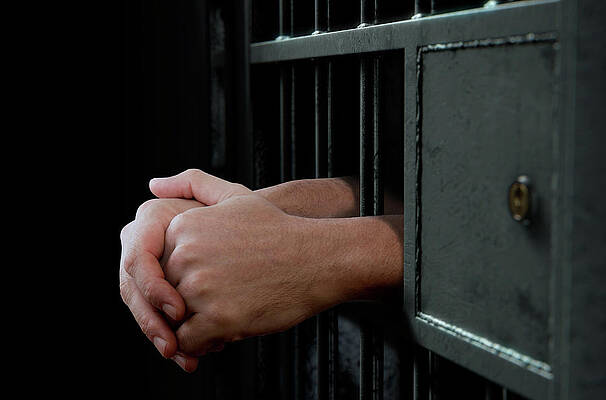Physical Address
304 North Cardinal St.
Dorchester Center, MA 02124
Physical Address
304 North Cardinal St.
Dorchester Center, MA 02124
With Michael Walker
With Michael Walker

A message to the Prisoner.

There is a question that haunts the honest soul—one that goes deeper than doctrine or dogma, deeper than performance and pretense. It’s a question that no pulpit platitude can satisfy, and no surface-level verse can bandage. If I am in a state of sin, and that state renders me incapable of not sinning, then what is the point of even trying? If I am inherently infected, systemically corrupted, spiritually compromised at the source—what good does it do to strive? Why make the effort to stop doing what my nature compels me to continue? If I cannot win this war from within the infection, then isn’t it pointless to fight?
This is not a sarcastic question. It is not rebellion in disguise. It is the cry of a mind that critically thinks and a spirit that genuinely wants truth, even if that truth is hard to hear. The answer cannot be filler, cannot be propped up by convenience or doctrinal default. This answer must be profound. And it is. But it cannot begin until we stop pretending that the effort to resist sin is about success. It’s not. It never was.
Imagine a prisoner in a locked cell. The door is sealed shut with no key, no guards, no visible way out. Every day, the prisoner gets up and throws himself against the door—not because he thinks he can break it down, but because he refuses to accept that the cell is his home. He knows he can’t open the door. It’s been welded shut. Every time he hurls himself against it, he ends up bruised and exhausted on the floor. The guards laugh. Other prisoners call him a fool. “The door won’t open,” they say. “Why keep trying?”
But what they don’t understand is this: he’s not trying to break the door open. He’s trying to prove that he doesn’t belong inside. He refuses to make peace with captivity. He refuses to sit down and decorate the walls of a prison he was never meant to stay in. So he fights—not because he thinks the effort will free him, but because the fight is his declaration that he belongs somewhere free.
And one day—unseen by him—a key turns in the other side of the lock. But not because he earned it. Not because God was impressed by his bruises. The door opens because something inside the prisoner has changed. You see, the man who was sentenced to that cell has died. And in his place now stands a new man. The old man may have belonged behind bars, but the new creation carries no sentence. There is no charge, no guilt, no warrant left to hold him. The door doesn’t open because of the struggle. It opens because the prisoner is no longer a criminal.
This is the mystery of the new creation. Only the person who knows they are caged and cannot escape by their own power—yet refuses to let the cage define them—is the one who begins to long for the transfusion of Jesus Christ. They no longer want better behavior—they want a different being. They cry not for leniency, but for rebirth. And once that transformation takes place—once the spiritual transfusion has replaced infected blood with divine breath—the system cannot legally hold them. Heaven’s courtroom has no jurisdiction over someone who no longer exists under indictment. The door must open because the new creation is not guilty.
Here’s another way to see it: humanity is in spiritual quarantine. We are biologically infected with sin. The human condition isn’t just corrupted by behavior—it is corrupted by blood. As long as the infection remains, the containment is justified. The bars are there because you’re contagious. But once that infection is cured, once the divine transfusion through Christ creates a being with no spiritual virus, the quarantine must end. You are no longer a biological threat. And the cell—designed to hold the infected—has no claim on the healed.
So when you ask what the point is—why try, why fight, why make the effort—the answer is not about spiritual performance. It’s about identity transformation. The effort itself will never break the door, but it exposes whether you are willing to stay infected. Whether you are content to let the cage define you. Whether you will settle for being the old man, or long to become the new. And when the change happens—not cosmetically, not religiously, but ontologically—the universe must respond. The door doesn’t open because you forced it open. The door opens because you are no longer the one it was meant to contain.
The man infected with sin who tries to stop sinning and fails has still done something holy—he has testified that the infection is not welcome. And when that desire becomes surrender, and that surrender becomes transformation, and that transformation becomes a new creation—the door opens on its own. Not as a reward, but as a recognition.
The prison holds sinners. Not sons. And sons don’t stay locked up.